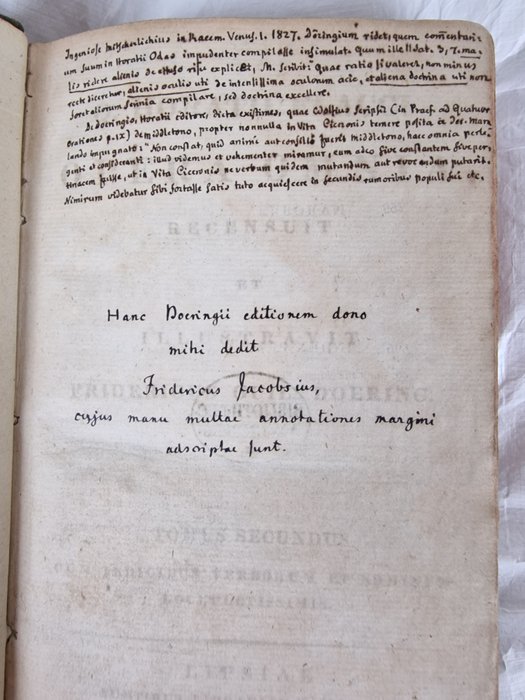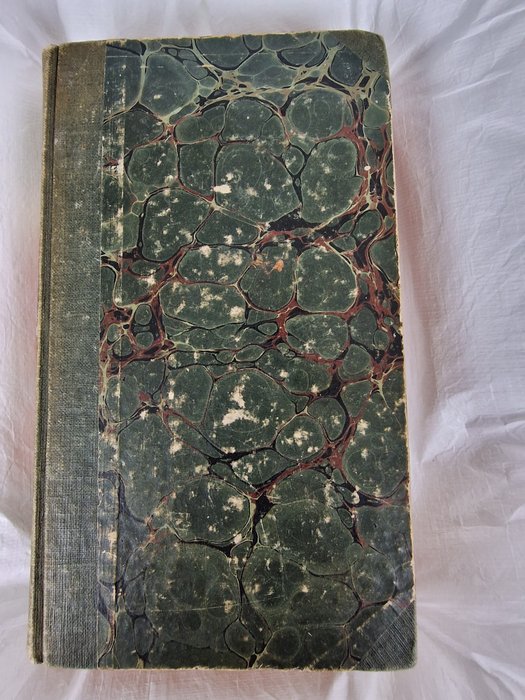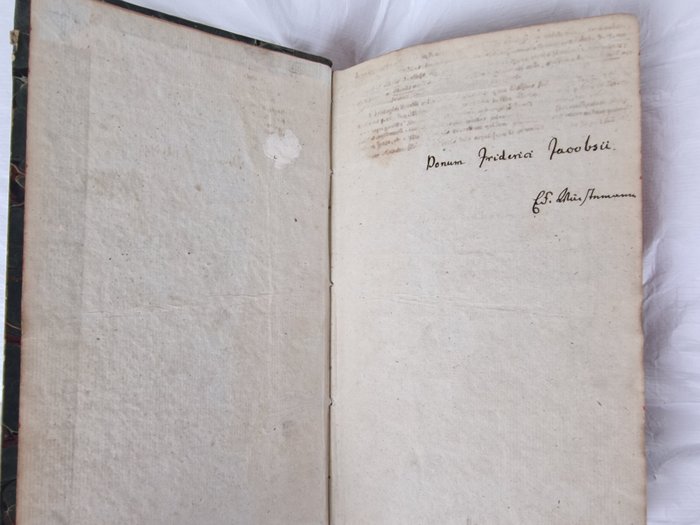Advert Description
Are you interested in this item? This item is up for auction at Catawiki. Please click on "respond to advert" (orange button) to get redirected to the Catawiki website. Catawiki’s goal is to make special objects universally available. Our weekly auctions feature thousands of unusual, rare, and exceptional objects you won’t find in just any store. The second book (of two books) of the collected works of Q. Horatius Flaccus as presented by Friedrich Wilhelm Döring. Based on the inscription in the beginning of the book it becomes clear that this particular copy was given by Döring to the famous German classical scholar, Friedrich Jacobs. The latter has provided liner annotations and comments throughout the book. Both Döring and Jacobs were residents of Gotha at the time as was Ernst Friedrich Wüstemann, who in turn received the book from Jacobs.
Q. Horatii Flacci - Opera Omnia - Recensuit et Illustravit Fridericus Guil. Doering - Tomus Secundus cum Indicibus Verborum et Nominum Locupletissimis. - Lipsiae – Sumtibus Librariae Hahnianae – MDCCCXXIV [1824] – 698pp. [22.5 x 14 x 4.8cm]
Friedrich Wilhelm Döring/ Doering (1756-1837) was German classical philologist, who, in 1786, became the rector of the Gymnasium illustre von Gotha. He worked on publications on Cicero (1797), Horace Flaccus (1814) and Titus Livius (1816-1819).
On the first free endpaper it says, “Donum Friderici Jacobsii” signed by what is very likely E(rnst) F(riedrich) Wüstemann (1799 - 1856), who was–just as Döring–a German classical philologist and high school teacher in gotha.
Also noted on an endpaper is the extensive notion (see photos) which includes the following statement: “Hanc Doenngii editionem dono mihi dedit - Fridicius Jacobsius, oujus manu multae annotations margini adsiphae funt” Which, loosely translated states that Döning gave me this edition as a gift, Friedrich Jacobs in his own hand added many annotations in the margins.
Friedrich Jacobs (1764-1847) was a German classical scholar. After studying philology and theology at Jena and Göttingen. His great work was a huge critical commentary to the Greek Anthology in 13 volumes (1798–1814), followed by the first modern edition based on the Codex Palatinus (1814–1817). He also published notes on amongst others, Stobaeus, Euripides, Athenaeus and the Iliaca of John Tzetzes in addition to writing some very successful school books. In 1809 he became correspondent of the Royal Institute of the Netherlands. Four years later, in 1813, he became associated member.
All in all a very interesting and important copy (in excellent condition) because of the many ties to the intellectual scene in Gotha at the beginning of the 19th century. And a unique insight into the academic comments on academic work by a renowned classical scholar by way of his handwritten notes. 67139379





